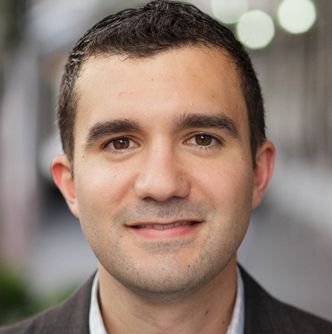Investigators Analyze Data for Youths Prescribed Antipsychotics for ADHD
New study breaks down initial antipsychotic prescriptions among young, ADHD patients.

Ryan Sultan, MD
A research team led by Ryan Sultan, MD, a physician scientist at the Columbia College of Physicians and Surgeons, is seeking to explain the little-known factors associated with antipsychotic medication to treat attention-deficit/hyperactivity disorder (ADHD).
The investigators performed a retrospective longitudinal cohort analysis of commercial antipsychotic treatment data on 187,563 individuals from 3-24 years old with a new ADHD diagnosis between 2010 and 2015 and found 4869 youths were prescribed an antipsychotic in the year following the initial ADHD diagnosis.
Between November 1, 2018 and May 30, 2019, the team examined the pre-ADHD diagnosis, clinical and demographic characteristics of youths who did or did not receive medication the year following a diagnosis, and the incidence of antipsychotic treatment and evaluated unadjusted and age and sex-adjusted logic regressions to find the associations of each clinical and demographic characteristics with antipsychotic treatment during the year follow-up period.
Overall, 4.3% of children between 3-5 years old were prescribed antipsychotics, 2.0% for children between 6-12, 3.2% for children between 13-18, and 2.4% for adults between 19-24.
The analysis included determining the prevalence of antipsychotic use over the first year following an initial diagnosis, evaluating the associations between clinical and demographic factors and antipsychotic prescribing and examining the frequency where stimulant treatment preceded antipsychotic treatment in the first year following a diagnosis.
Those treated with antipsychotic drugs were more likely than their peers analyzed in the study to have received a diagnosis of self-harm and/or suicidal ideation, oppositional defiant disorder and substance use disorder.
The youths in the study who received antipsychotic treatment also were more likely to receive inpatient treatment.
Of the 4869 prescriptions, the majority of which were Risperidone (37.8%), Aripiprazole (32%), and Quetiapine (20.7%).
Overall, the investigators found that antipsychotic medication is prescribed more for preschool-aged children and is linked with neurodevelopment disorders and recent inpatient mental health treatment.
The use of antipsychotics is also tied to high levels of psychiatric comorbidity.
“Among youths with ADHD, several clinically diagnosed mental disorder comorbidities have been associated with an elevated likelihood for antipsychotic treatment,” the authors wrote. “In youths with ADHD, many of these comorbidities are related to poorer response to stimulant treatment and adverse outcomes.”
Prolonged exposure could also lead to a number of negative consequences, including weight gain, hyperlipidemia, and increased risk of type 2 diabetes and unexpected death.
“Approximately half of youths with a new ADHD diagnosis may have an evidence-supported indication for an antipsychotic medication,” the authors wrote. “Less than half of these youths received a stimulant; the evidence-supported first line treatment for ADHD, before the antipsychotic was initiated.”
Despite a lack of understanding of the factors associated with antipsychotic treatment, there has been a 50% increase in prescriptions between 1999 and 2014 for young people.
While a portion of this increase is tied to use for treating schizophrenia, bipolar disorder, irritability associated with autistic disorder and Tourette disorder, much of the increase is linked to non-FDA-indicated prescribing for disorders like ADHD.
The study, "Antipsychotic Treatment Among Youths With Attention-Deficit/Hyperactivity Disorder," was published online in JAMA Psychiatry.